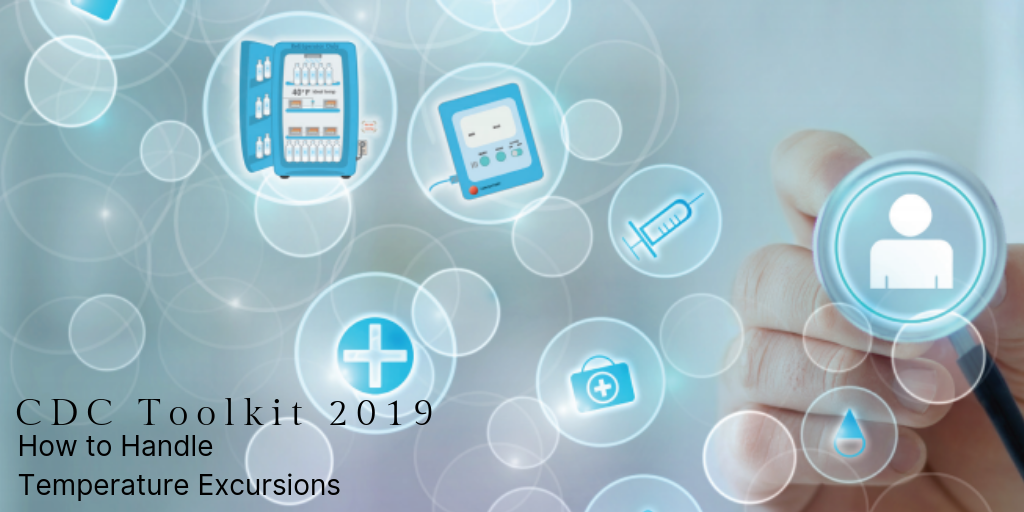
Temperature excursions or inappropriate storage conditions for any vaccine require immediate action. Any temperature reading outside the recommended ranges in the manufacturers’ package inserts is considered a temperature excursion. In general, manufacturers analyze information about the magnitude of the temperature excursion and the total amount of time that temperatures were out of range, as well as information about the vaccine in question, to determine whether a vaccine is likely to still be viable (CDC).
CDC recommends the following steps in the event of a temperature excursion:
- Any staff who hears an alarm or notices a temperature excursion on the DDL should notify the primary or alternate vaccine coordinator immediately or report the problem to their supervisor.
- Notify staff by labeling exposed vaccines, "DO NOT USE," and placing them in a separate container apart from other vaccines (do not discard these vaccines).
- The vaccine coordinator, supervisor, or if necessary, the person reporting the problem should begin to document the event with the following information:
- Date and time of the temperature excursion
- Storage unit temperature as well as room temperature, if available (including minimum/maximum temperatures during the time of the event, if available)
- Name of the person completing the report and description of the event:
- General description of what happened
- The length of time vaccine may have been affected, if using a DDL
- Inventory of affected vaccines
- List of items in the unit (including water bottles) other than vaccines
- Any problems with the storage unit and/or affected vaccines before the event
- Other relevant information
- Implement your facility SOPs to adjust unit temperature to the appropriate range. At a minimum, check the TMD to make sure it is appropriately placed in the center of the vaccines.
- Contact your immunization program and/or vaccine manufacturer(s) per your SOPs for further guidance on whether to use affected vaccines and for information about whether patients will need to be recalled for revaccination. Be prepared to provide documentation of the event (e.g., temperature log data) to ensure you receive the best guidance.
- Complete your documentation of the event, including:
- Action taken
- What you did with vaccine and how long it took to act
- Whom you contacted, and instructions received
- What you did to prevent a similar future event
- Results
- Final disposition of affected vaccines (e.g., shortened expiration date per manufacturer, discarded, or returned)
- Other comments
The Immunization Action Coalition has developed a Temperature Monitoring Log and a Vaccine Storage Troubleshooting Record to support these activities.
Responses from vaccine manufacturers to events depend on information given by the provider to the manufacturer. If different information about the same event is provided to the same manufacturer, this can lead to different recommendations on whether vaccine can be used or whether patients need to be revaccinated. In addition, each event is unique, and manufacturer recommendations based on existing stability data cannot be applied to future events that may appear to be similar.
All the information provided in this post is directly from the CDC Vaccine Storage and Handling Toolkit. Please consult with your state and local programs for specific direction regarding vaccine storage and handling.
This blog post is part of a series on refrigeration and the CDC Vaccine Storage and Handling Toolkit. Read the rest of the series at the links below.
- CDC Vaccine Storage and Handling Toolkit 2019: Refrigerator and Freezer Recommendations
- CDC Toolkit 2019 Temperature Monitoring Recommendations
Other Blogs You Might Be Interested In...
- Certificate of Calibration Testing for Vaccines
- CDC Vaccine Storage and Handling Toolkit 2019: Refrigerator and Freezer Recommendations
- CDC Toolkit 2019 Temperature Monitoring Recommendations
- Vaccine Storage: Studies Show that Storing Vaccines within the Correct Temperature Range is Still an Issue
- Recent changes in Vaccine Recommendations and Immunization Practices



